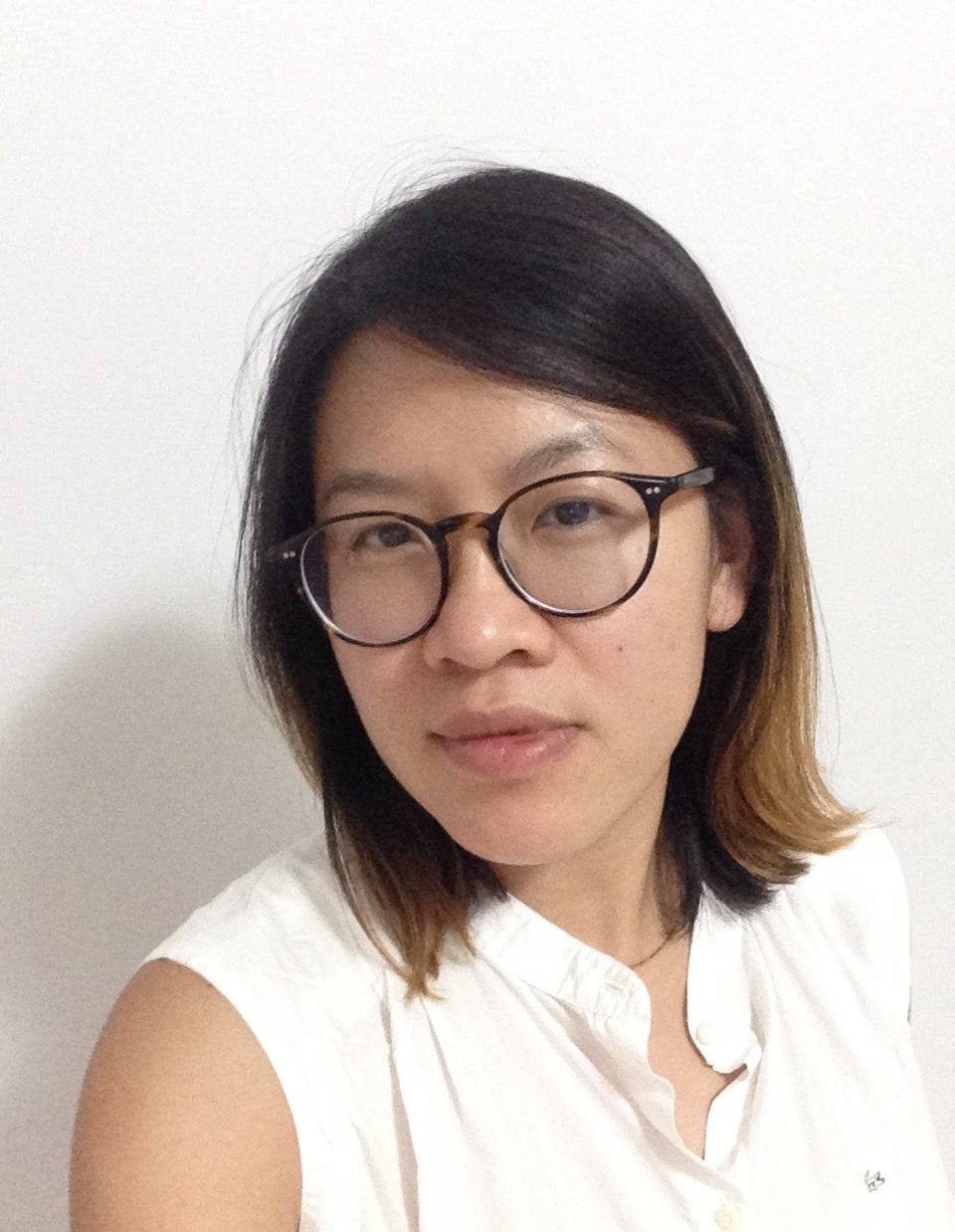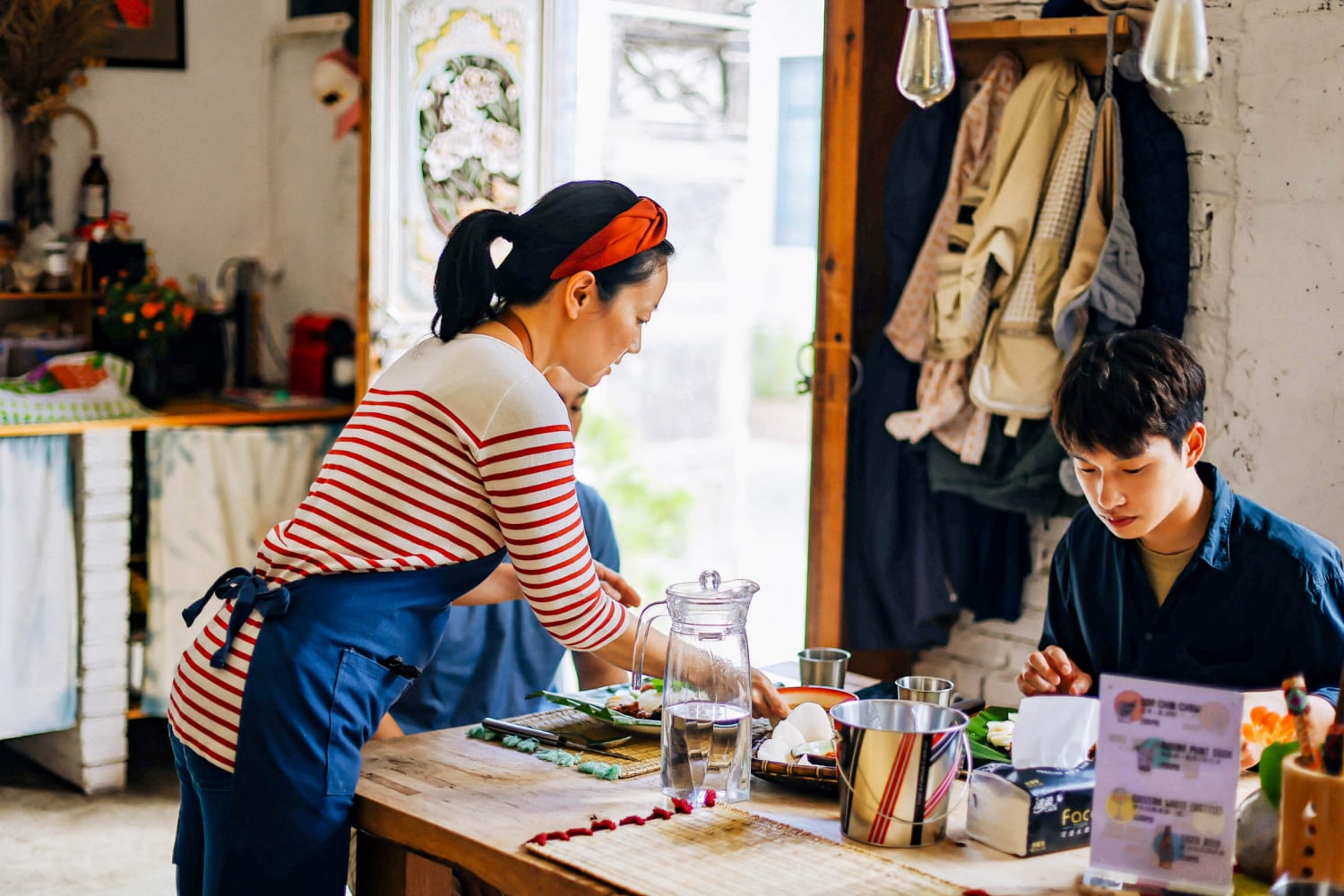
Every Saturday lunchtime, Limay Loo cooks up a storm for a group of people, sometimes strangers, in her kitchen, who bonds over laughter, conversations and laksa.
Laksa is one of Singapore’s best-known dishes, created by local Malay women who had married Chinese traders and sailors—thick rice vermicelli with prawns and tau pok (tofu puff) in a rich, spicy coconut broth, garnished with a sprinkling of chopped daun kesum (laksa leaves).
I eat laksa mostly for the see hum (blood cockles), but they can be impossible to find overseas, especially in a village in rural China so Loo makes do without.
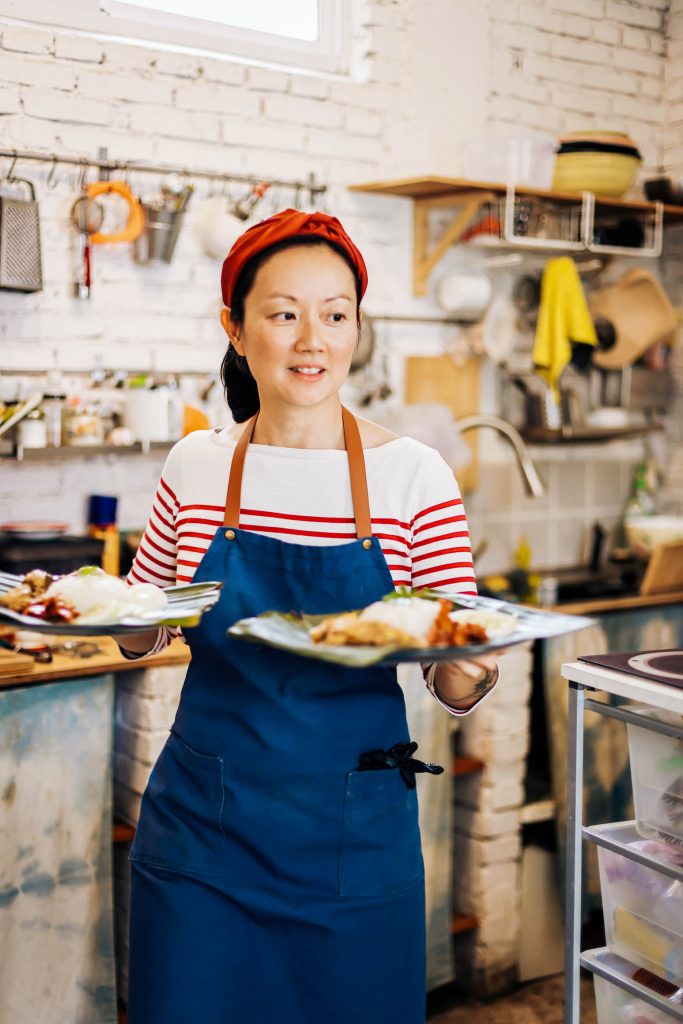
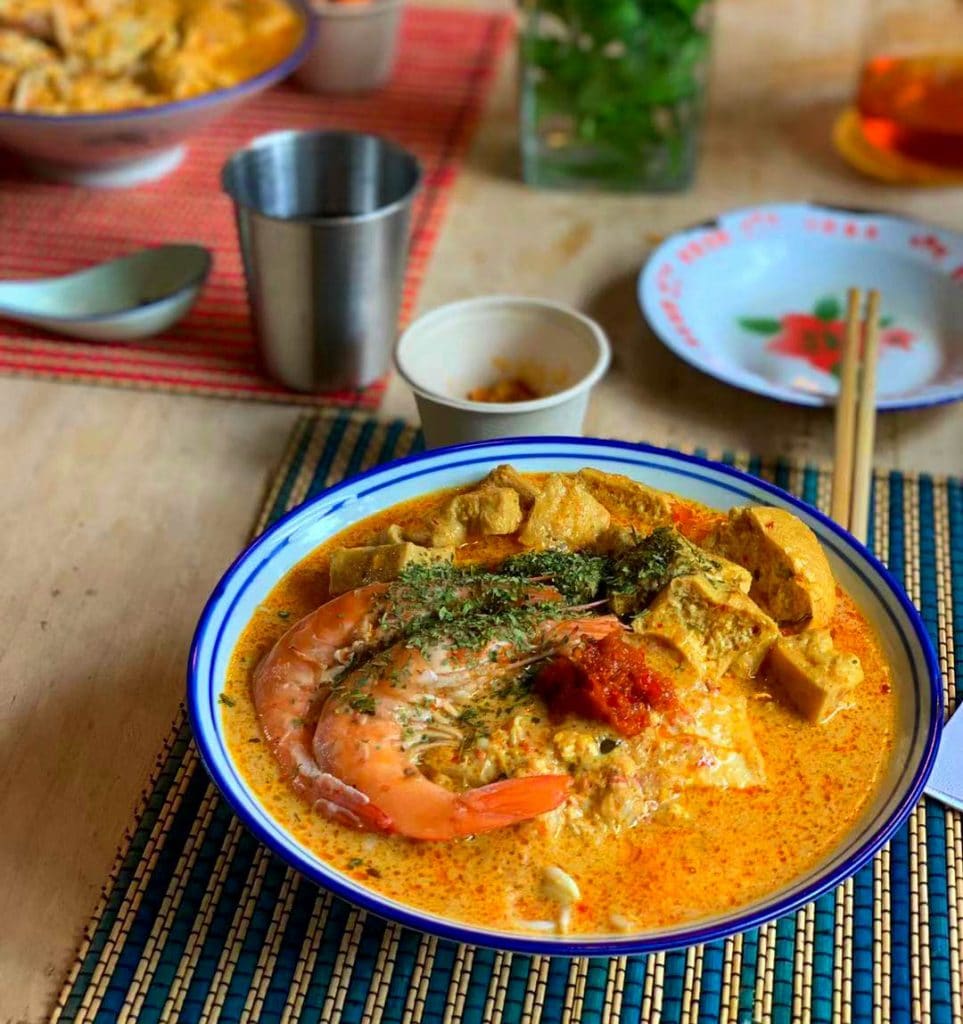
Loo, who was born and raised in Singapore, has been living in the countryside outside Dali, a city in southwestern China’s Yunnan Province, bordering Myanmar, for nine years and counting.
A former marketing agency executive, Loo and her husband were working in Shanghai, China’s most populous city, when he proposed swapping out their hectic and unhealthy urban lifestyle for a calmer one in the countryside. She said yes immediately even though she had never been to Dali.
Loo exclaims, “The years have flown by. I remember signing the 10-year lease for our traditional Bai courtyard house, thinking we probably won’t stay for 10 years, but here we are, planning to extend our contract probably for another 10 years. I want to say we won’t stay 10 years again but I won’t make that same mistake twice.”
Because of the Covid-19 pandemic, Loo has not been home in more than two years, the longest she has been away, and there are no restaurants serving Singaporean food in the vicinity.
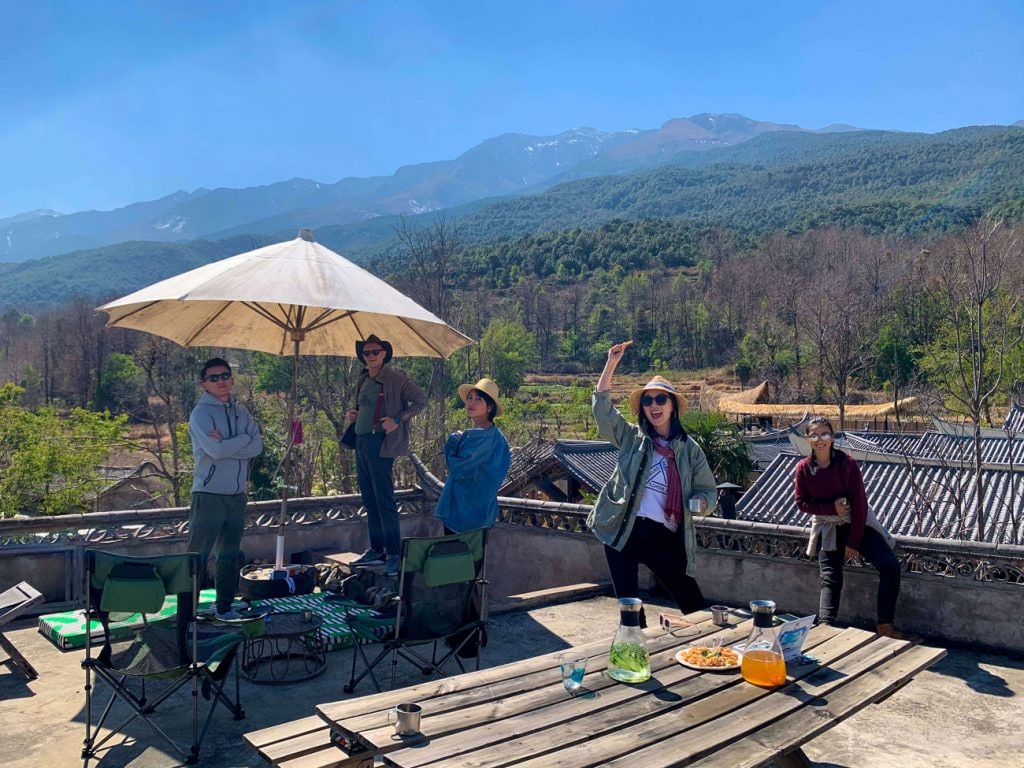
“Something positive that came out of the pandemic is that it drove me to cook laksa from scratch because I missed it so much.”
For someone with no cooking background, her decision to start a private kitchen in late January this year actually stems from her own craving for laksa.
To her surprise, she could find ingredients easily on Chinese e-commerce platforms such as Taobao and JD.com, even from the same brands back home, although she does need to plan ahead as delivery takes about three to five days.
“Something positive that came out of the pandemic is that it drove me to cook laksa from scratch because I missed it so much. It gradually turned into a private kitchen which I have been running for some months now, sharing my favourite Singaporean dish with the people here.”
She has the space and two big tables, in her kitchen and on her patio respectively. Launching a new business in a pandemic turned out easier than she thought. There were no cases of Covid-19 infection in Dali and life had gone on as per usual. The fact that China had closed borders actually helped as no one could travel out of China. People were restless and increasingly looking for new experiences.
So far, her guests consist of Chinese and foreigners, including one fellow Singaporean—her first time meeting anyone from home in all her years living in the Dali countryside. Since starting the private kitchen, she has now crossed paths with a handful of Singaporeans who lives in the same province.
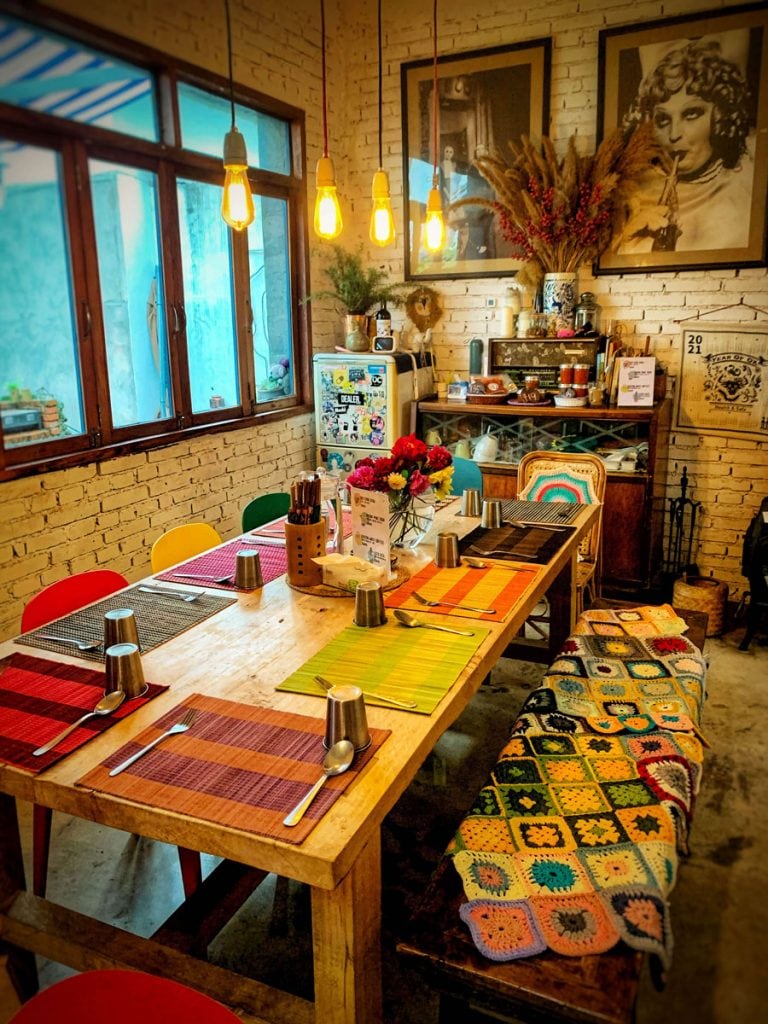
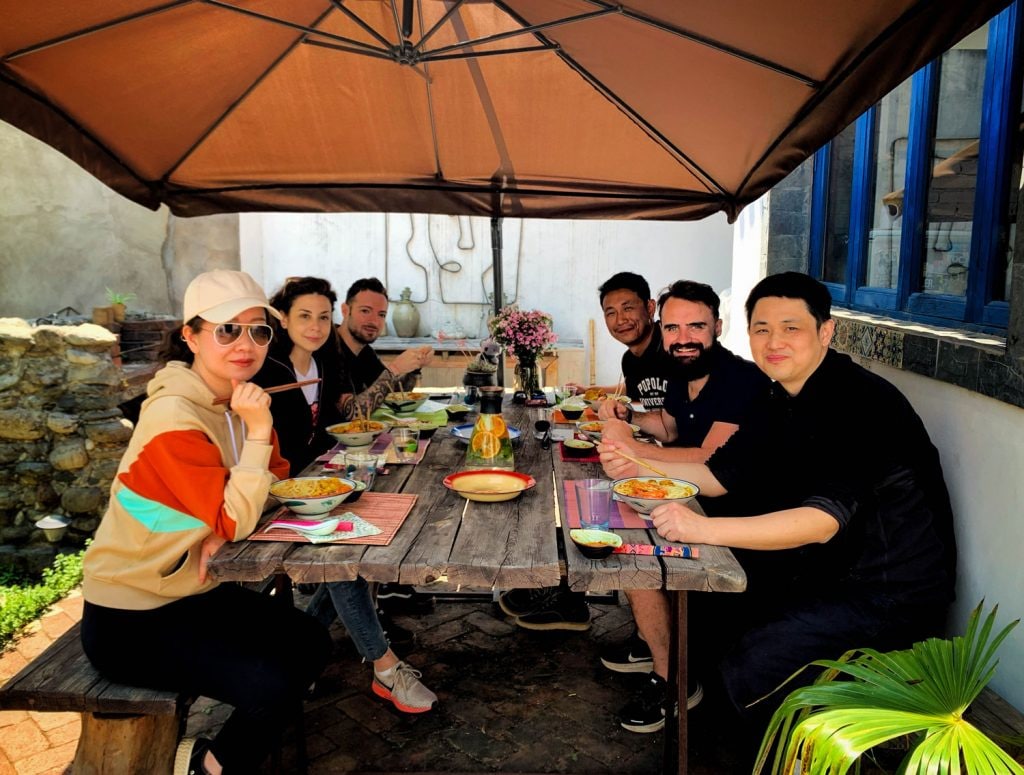
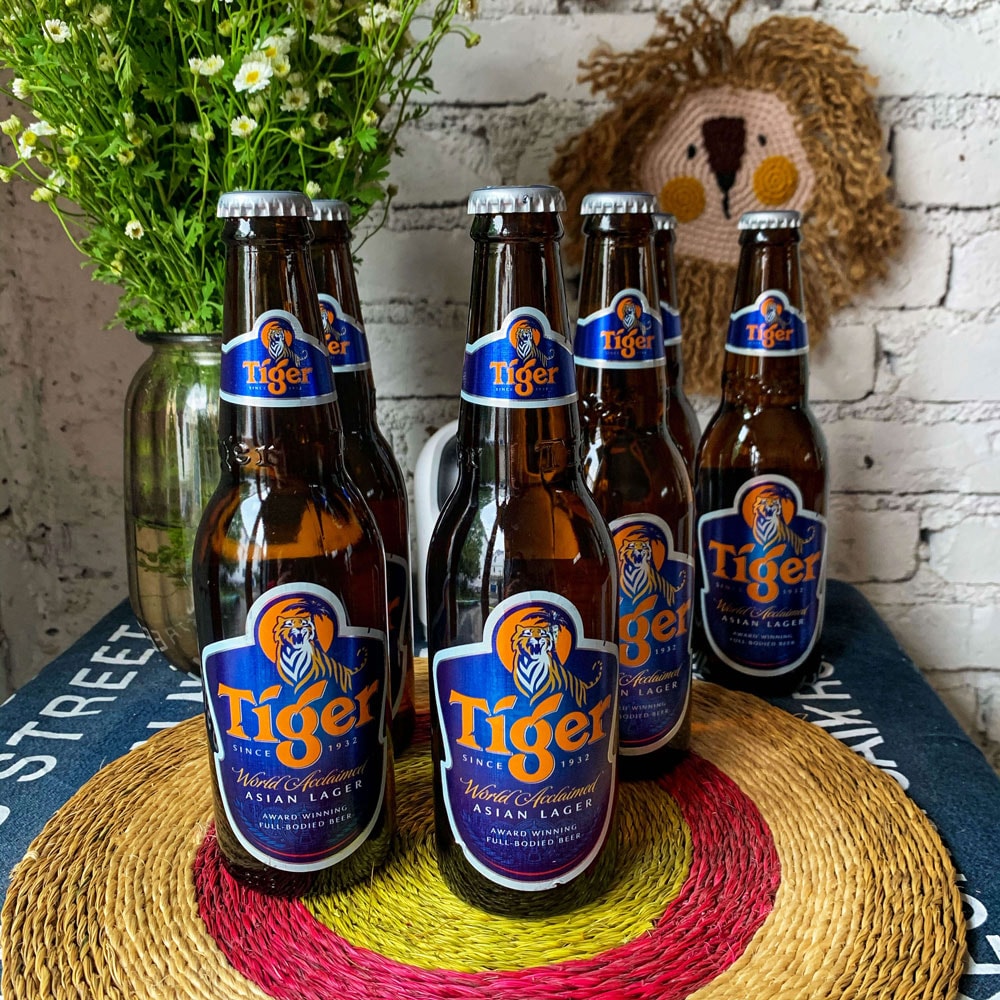
“My husband is French and I’m always jealous that he gets to meet French people everywhere he goes. When I started this private kitchen, I thought to myself that if there were any Singaporeans around, laksa would draw them out. And it did!”
Loo muses, “The more homesick I am, the more I want people to eat laksa and drink Tiger Beer. Somehow it makes me feel closer to home and my family. Maybe because every week I get to chat a bit about Singapore with my guests? I’m trying to slowly add more Singaporean touches. So far I’ve thrown muah chee (glutinous rice balls coated with sesame seeds and peanuts), achar (spicy mixed vegetable pickle), grass jelly and keropok (deep-fried crackers) into the mix.”
Looking back, Loo has no regrets moving to the countryside. The weather is great, they are close to nature, their surroundings picturesque. “Our life here is carefree and fulfilling. The cost of living is low and we have lots of space. It is a conducive environment that allows us to explore, experiment and act on our ideas so we’re constantly working on new projects.”
“With projects like these, you don’t need much capital. You just need passion and energy. And enjoy the process. If it’s not enjoyable, why do it in the first place right?” she adds.
“It is a conducive environment that allows us to explore, experiment and act on our ideas so we’re constantly working on new projects.”
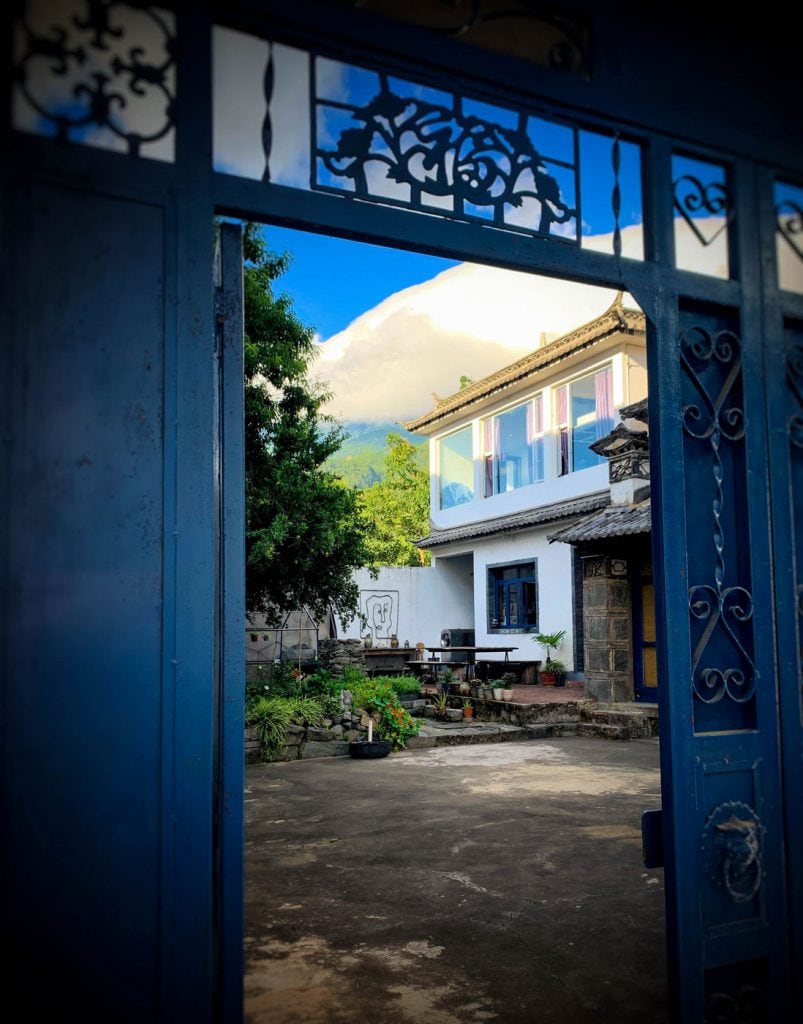
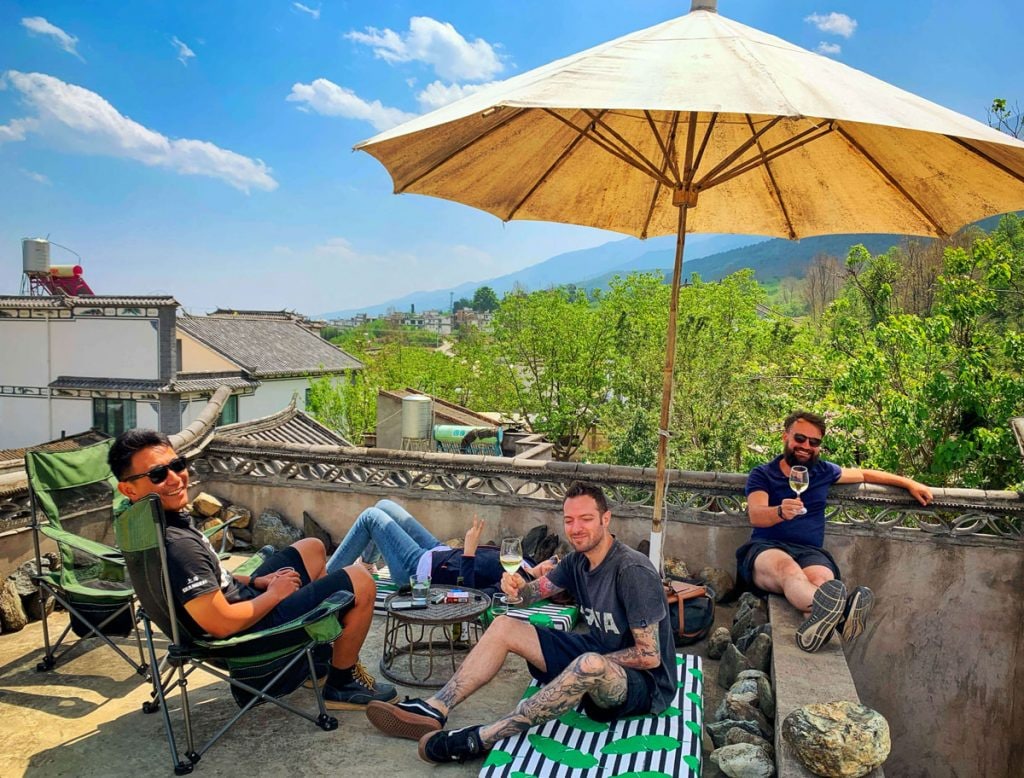
Loo makes it seem effortless but the truth is, in addition to the private kitchen, Loo is also running Hanky Buddies, INDIGO Art Studio, and she just had a baby about a year ago.
“When I launched this private kitchen, we didn’t have a nanny yet but I just had to do something outside of mothering. So even though it was tough, I went ahead with it. Now we have a full-time nanny to help with Luka and she also helps out in the kitchen when there are many guests.”
Loo acknowledges that motherhood has changed the way she works—well, she has no time to procrastinate these days. “Before I would try to think everything out properly before attempting something. Now I just take the plunge and deal with problems as they arise because if I deliberate too long, it’s not going to happen at all. I don’t try to control everything anymore because nothing is perfect and there’s beauty in that too.”
What she didn’t expect when she moved to the countryside was to find a group of like-minded foreign and Chinese friends, many of whom have similar stories of quitting big cities and searching for a different lifestyle.
As Loo explains, it is a creative and eclectic community of artists, musicians, chefs, restauranteurs, designers, photographers, yogis, traditional Chinese medicine practitioners, and more, where everyone would support and learn from one another, collaborate and hang out together.
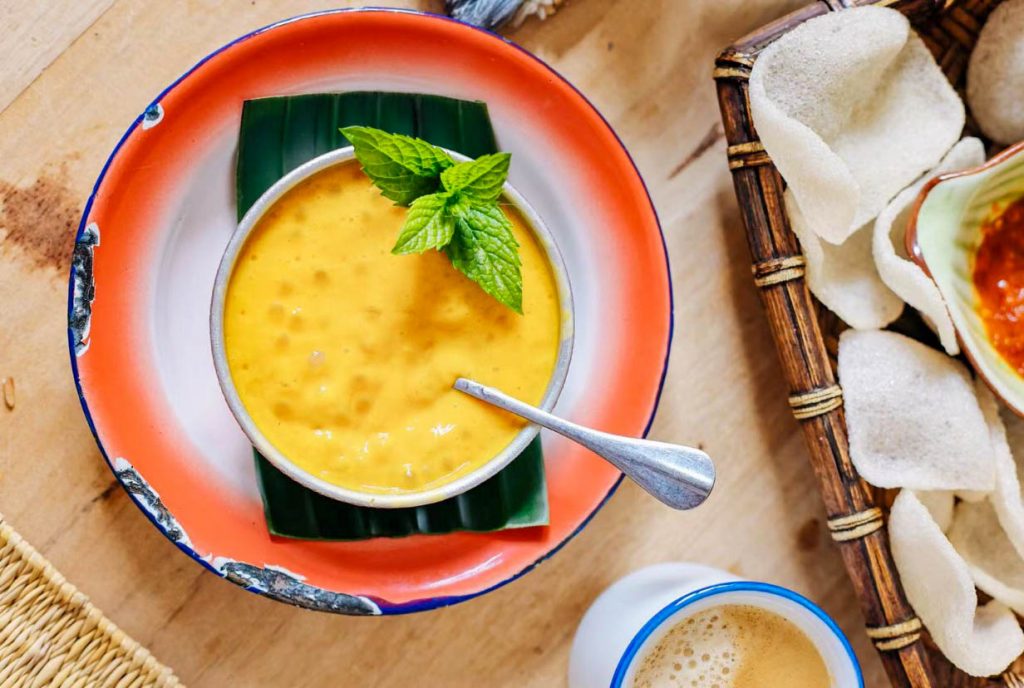
“I don’t try to control everything anymore because nothing is perfect and there’s beauty in that too.”
After having Luka, Loo appreciates that the community is also very accepting and non-judgmental.
She admits candidly, “Materialism and superficiality take a back seat in everyday life here. And I think that this environment with a big focus on nature and wholesome living is perfect for a kid in his formative years. The only big downside is we are separated from our families back home.”
For now, at the private kitchen, Loo is still learning on the job, taking every challenge in her stride. It can rain non-stop for days, sometimes weeks, during the summer rainy season, typically from July to September. As she found out the hard way, alfresco dining would be impossible so she could only host half the number of people.
She has learnt to be more organized, making sure she has enough ingredients in case something goes wrong, requesting for pre-payments in full to counter cancellations and even preparing two additional portions every time to accommodate guests who sign up last minute.
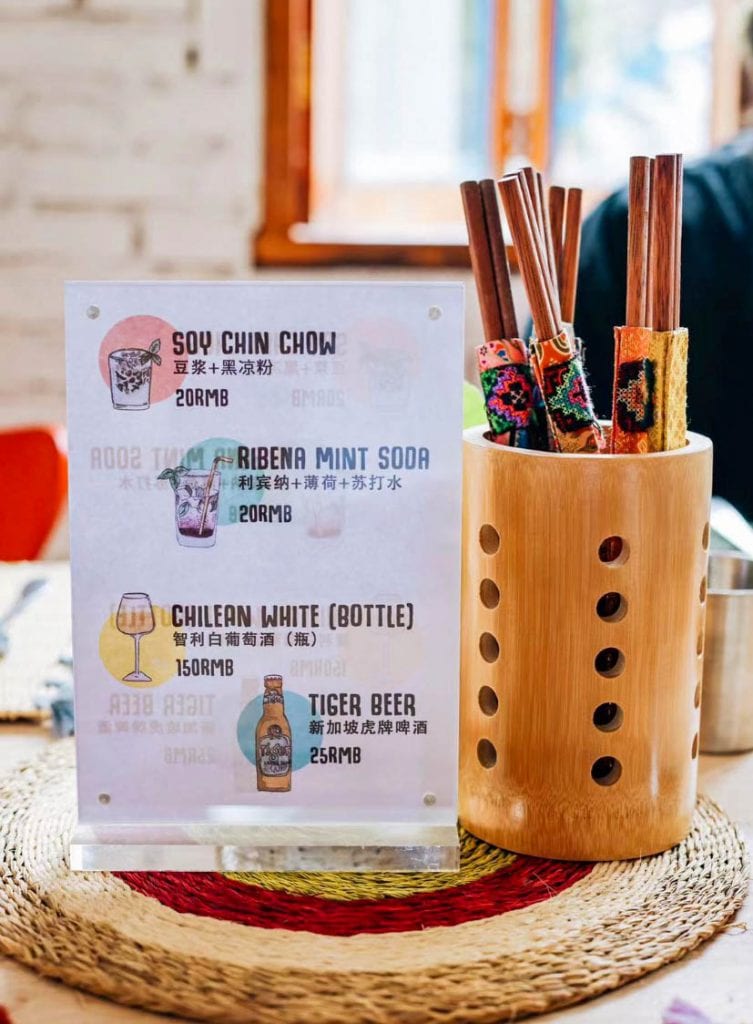
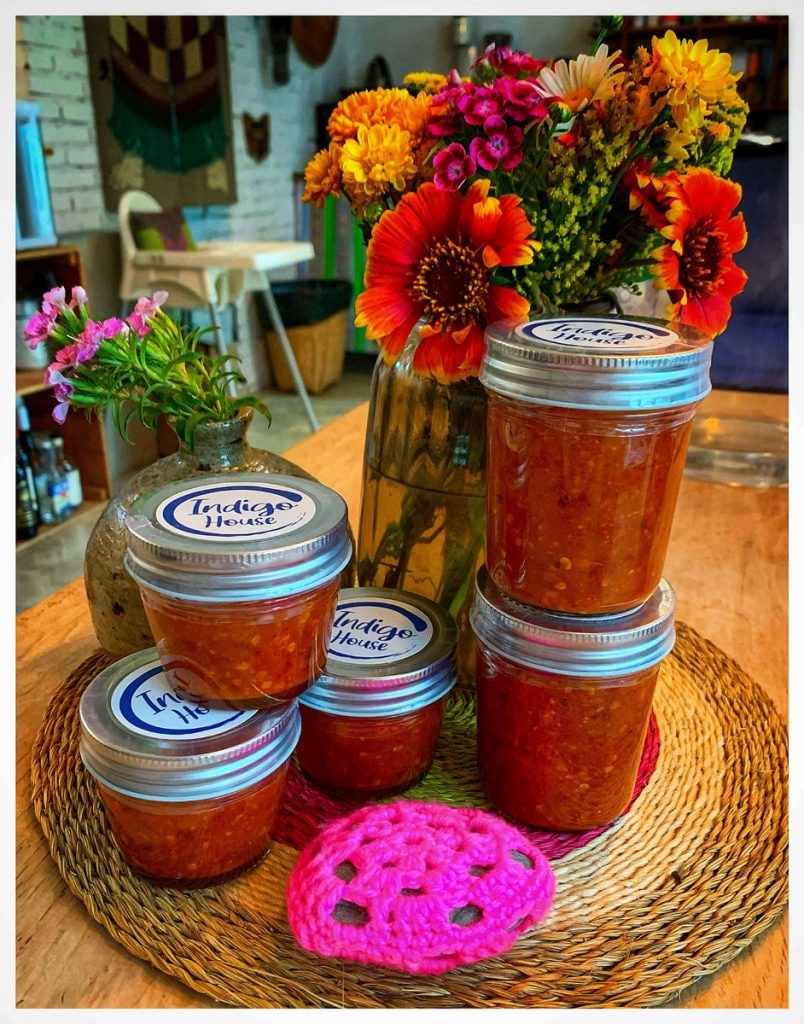
Already Loo is thinking ahead and making plans for the future. Perhaps next up would be a set menu for tea with Singaporean treats like curry puffs, kuih (bite-sized snacks), bubur cha cha (sweet potato and yam in coconut milk) paired with Singapore-style coffees and teas.
She is also toying with the thought of opening a showroom where people can buy her handmade lifestyle products and homewares, sambal chili paste, her husband’s artworks and homemade granola while chomping on delectable goodies.
In the meantime, she is working on building her latest venture into one that will be known for serving delicious and authentic Singaporean food—a friendly spot to get good food for local residents and a must-do for those who visit Dali.
Loo quips, “I want to be known as the ‘Singapore Laksa Lady’ haha! I would like my guests to not only enjoy the food but to feel the warmth of Singaporean hospitality, like the same familiar feeling I get the moment I land at Singapore Changi airport.”
Related Articles
-
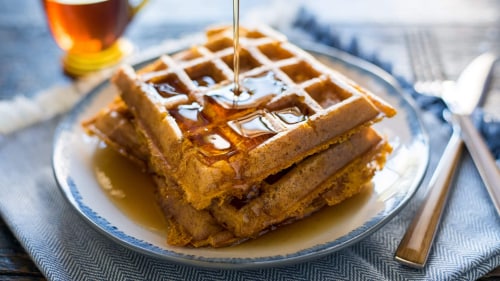 Travel & Culture March 16, 2020 | 6 min read Significance of Sustenance: Burlington I grew up in the shadow of the slopes in the Pocono Mountains, but the icy Pennsylvania conditions made skiing decidedly unfun for fall-prone little-ol’ me.
Travel & Culture March 16, 2020 | 6 min read Significance of Sustenance: Burlington I grew up in the shadow of the slopes in the Pocono Mountains, but the icy Pennsylvania conditions made skiing decidedly unfun for fall-prone little-ol’ me. -
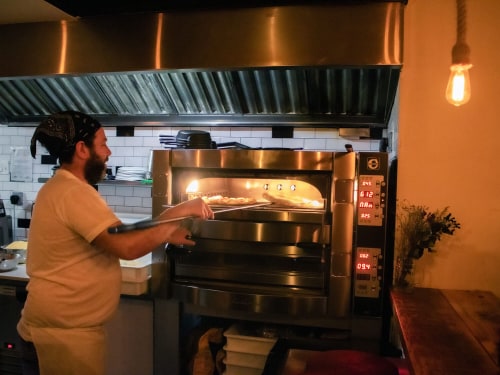 Travel & Culture April 02, 2020 | 8 min read A Brooklyn Pizzeria Fights Through COVID-19 COVID-19 hit the city like a slow-moving hurricane. We knew it was coming, but we were still in shock. Everything was uncertain.
Travel & Culture April 02, 2020 | 8 min read A Brooklyn Pizzeria Fights Through COVID-19 COVID-19 hit the city like a slow-moving hurricane. We knew it was coming, but we were still in shock. Everything was uncertain. -
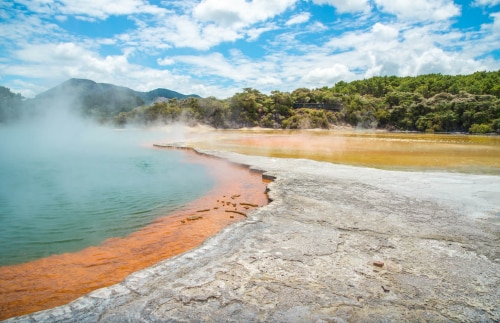 Travel & Culture June 23, 2020 | 6 min read Distinctive Process: Maori Hangi Steaming geothermal pools set against a vivid blue sky, in the middle of lush natural surroundings and a day spent soaking up indigenous Maori culture.
Travel & Culture June 23, 2020 | 6 min read Distinctive Process: Maori Hangi Steaming geothermal pools set against a vivid blue sky, in the middle of lush natural surroundings and a day spent soaking up indigenous Maori culture.
